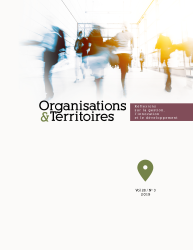Modèle de gestion moderne de projet : entre tradition et renouvellement théorique
DOI:
https://doi.org/10.1522/revueot.v28n3.1087Keywords:
Project managementAbstract
On the epistemological, theoretical and methodological levels, modern project management is carried by universal approaches and their critical perspectives, but also by currents of thought of hypermodernity. This article highlights paradigmatic models and identifies the theoretical frameworks within which researchers could write their work. The traditional positivist universal approach considers the project as an entity of practical origin. The manager is valued for his instrumental skills that optimize management success of the project. On the other hand, the contingent perspective puts forward the synchronized synergy and collaboration of the teams; it develops flexible structures to satisfy stakeholders. As a result, the assumption that the universal approach is a better predictor of project success than the contingent approach is a myth. The analysis shows that the two perspectives are complementary, and that they have drivers and obstacles for the overall success of the project.



